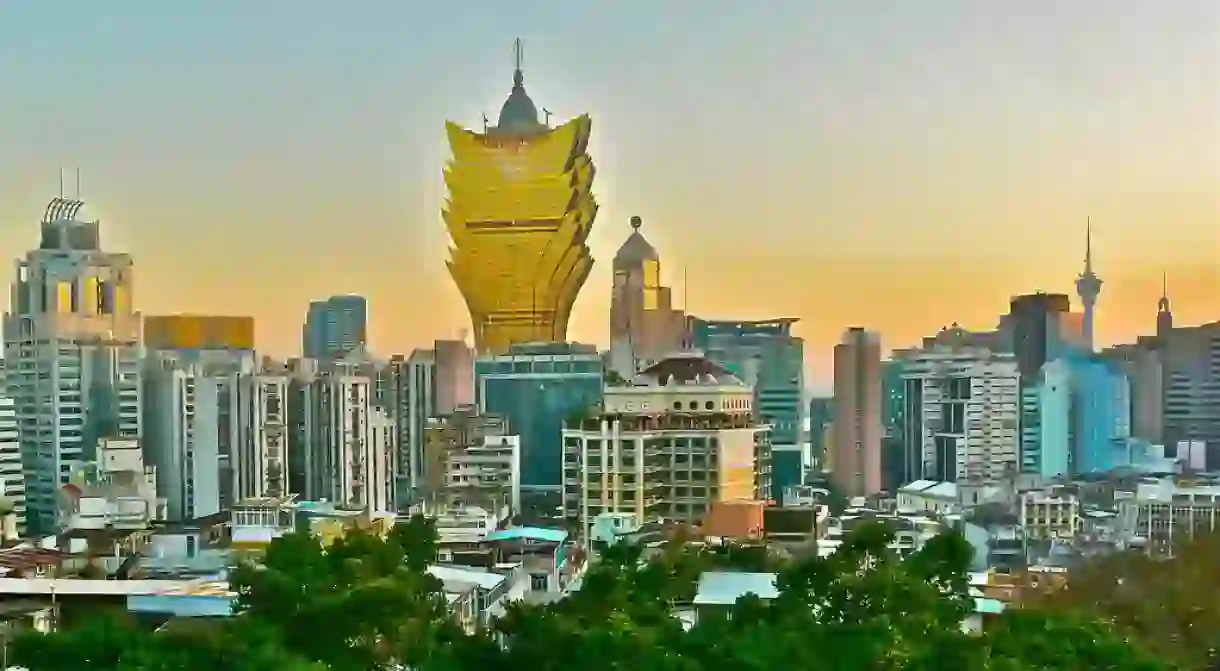The City that Gave the World Fusion Cuisine

East meets West in Macau, just like its flavoursome food. Contrary to popular belief, fusion cooking was not introduced in the 1970s by innovative professional chefs. In fact, its roots go back centuries to its earliest pioneer; the lesser known Macanese cuisine.
More recently, the southern Chinese city of Macau has become known as the Las Vegas of the East – the world’s largest gambling hub. However, few know that it’s also the place where Portuguese and Chinese cuisine melded over 400 years ago to create what is regarded as the world’s first truly global fusion cuisine.
Today, there are numerous kinds of well-known fusion cuisines such as Tex-Mex (a combination of Texan and Mexican) and even popular hybrid foods like the cronut (a croissant-doughnut hybrid) or ramen burger (Japanese-American style burger).
However, historically, until the late 20th century, most cross-cultural culinary exchanges took place between relatively close neighbours such as the United States and Mexico. Except in Macau.

The Portuguese colonised Macau in 1557. The European settlers brought with them different herbs, spices and cooking methods like roasting, grilling and stewing; none of them traditional to the Chinese. Over time, this type of southern Chinese cuisine using Portuguese ingredients, spices and techniques blended into a distinct style that became known as “Macanese”.
Unlike so many of today’s modern East-meets-West recipes that are typically created out of novelty, Macanese cuisine has stood the test of time, with its classic home-style recipes passed down from generation to generation.
Some classic Macanese dishes include minchi, considered Macau’s national dish, made from minced beef with soya sauce, onions and a fried egg, served with rice and/or fried potatoes. There are others like tacho (a fusion stew made with Chinese and Western ingredients), cappela (a baked meatloaf made with cheese, black olives and breadcrumbs, topped with crispy bacon), and Portuguese chicken (made with turmeric powder, black olives and sausages).

In addition, Macanese cuisine has several popular street food snacks, such as its pork chop bun – a fried pork chop in a bun that is crispy on the outside and very soft inside. It’s often described as “the Macanese version of a hamburger”. There’s also Macau’s own edible icon – the Macau egg tart. Although they derive directly from Portuguese pastries, the Macau egg tarts are believed by aficionados to be the best in the world.

To this day, it’s often hard to find Macanese dishes in the city’s restaurants as its more commonly regarded as a cuisine that’s cooked at home. Restaurants specifically devoted to the cuisine are few and far between.
Over the past decade, since the arrival of Las Vegas style casino resorts and the rapid emergence of international restaurant chains, concerns have grown that Macanese food is increasingly losing its presence in the city.

“Of all the new hotels and resorts that have opened in Macau in the past 10 years, not one has a Macanese restaurant,” says Macanese chef Antonieta Fernandes Manhao (Neta), in an interview with the South China Morning Post.
Leading the comeback for her beloved native cuisine, chef Neta spends her time educating locals and tourists about Macanese origins and offers cooking classes and demonstrations in a quest to pass down classic Macanese recipes to younger generations.
Local chefs like Neta hope that by continuing to promote the cuisine, both regionally and internationally, more people will hear about Macanese cuisine, its significance as a fusion pioneer and discover its unique and delicious flavours for themselves.
“Macanese cuisine is such an interesting food, you would never think of mixing Chinese and Portuguese ingredients and I believe many people would be intrigued and curious to try it,” she told the South China Morning Post. “If we start doing more demonstrations, hopefully, more and more people will get to know and understand what Macanese cuisine truly is.”
Although not widely represented in Macau, there are some local eateries specialising in authentic Macanese cuisine. Among them, APOMAC Macau – a civil-servant retirement club that serves up delicious homestyle dishes. Recently, a new Macanese menu called ‘Taste of Tradition’ has been added to Urban Kitchen, a buffet-style restaurant located inside the Galaxy Macau resort.













